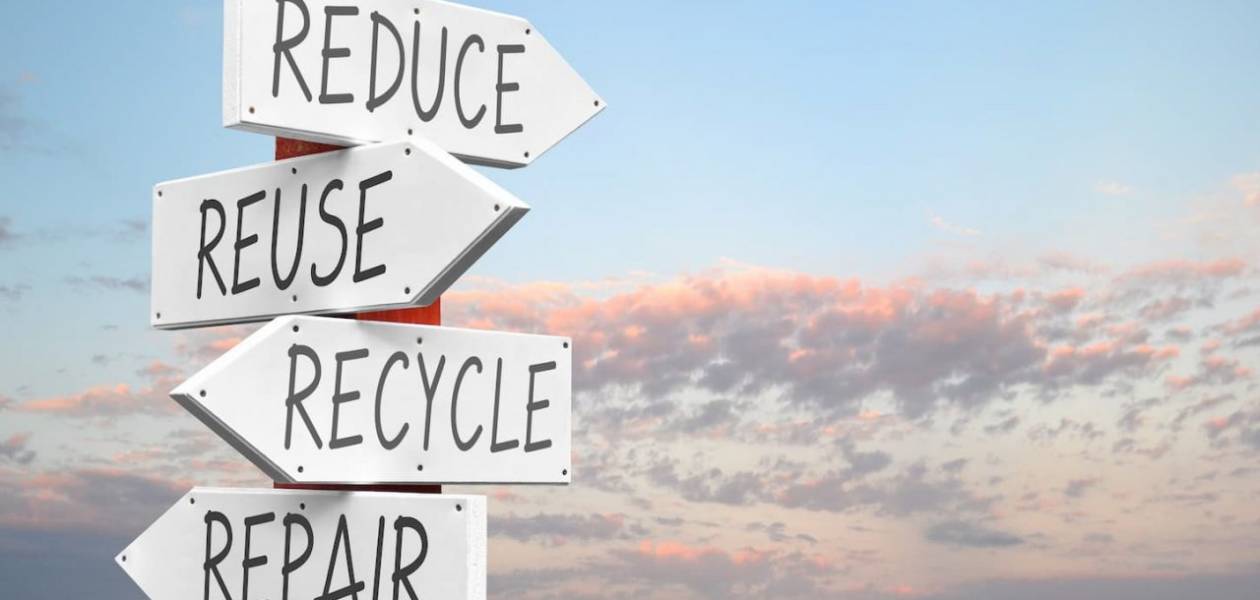
Reuse and reduce in the circular economy: here's what you can do
Waste is inevitable, but we need to take a circular rather than a linear approach to deal with it. The circular approach would imply that we reuse or recycle our waste but currently a very large proportion of waste is thrown in the trash, mainly in landfills, some being incinerated.
Let's take a look at South Africa. In 2017, the country generated a total of 54 million tonnes of waste, of which 38.6% was recycled and 61.4% was landfilled. These relatively promising statistics look much worse when you add the 66.8 million tonnes of hazardous waste to the equation, making a total of 110 to 120 million tonnes of waste per year - and those numbers don't include not mining waste. When you add up regular waste and hazardous waste, only 6.3% is recycled, the rest ends up in landfills. Cumulatively, 79% of the waste goes to landfill. 21% of waste is therefore recycled / recovered. It is disastrous for an economy of this stature and maturity. Currently 58% of paper, 78% of glass and 75% of metal is recycled. For plastics, the figure is 43%. Microplastics pose a serious threat to our entire food chain.
The problem may seem too big for ordinary people to navigate, but the point is that the transition to a circular economy begins when producers of goods and services are forced to adapt to what consumers prefer and buy. What can we do at the level of the ordinary citizen, what means of action for a household?
One step is to stop sending organic waste to the landfill. Waste management services should stop collecting organic material, which is more than half of it water. By adopting the circular approach, they should be returned to the ground, for example by composting it. Nature works through recycling - think of dead leaves that become nutrients and mulch for plants Earth needs its moisture, trace elements and fibers to remain fertile and productive.
Some may remember the days when milk and fruit juices were delivered in glass bottles decades ago at night, using battery-powered delivery vehicles so as not to wake up the crowd. sleeping population. Well, it would be good to come back to it because glass is practically reusable and infinitely recyclable. In this way, we could stop the demand for single-use plastics and complex composite packaging to recycle.
Recycling is great, but reusing is even better. And that should be our first choice. Only then can we consider recycling what cannot be reused.
The main thing is that we have to become more regenerative in our daily life. We have no choice if we want to survive.
Sources : "Simply Green" magazine
Posted on 2021-08-31 15:56








Comments